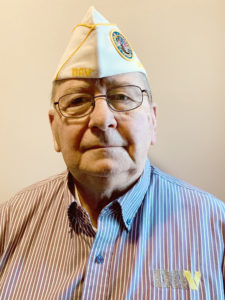Amid the clamoring of the Capitol incident, disabled veterans achieved significant legislative victories during the closing days of the 116th Congressional Session. The dual victories will provide the needed benefits earned by veterans and will re-shape the vision of the Department of Veterans Affairs (VA) toward women veterans in the future.
The first victory was the override of the Presidential Veto of the National Defense Authorization Act (NDAA) of 2021 (known as H.R. 6395). Two-thirds of the House and Senate (including Representatives Steve Chabot, Brad Wenstrup and both Ohio Senators) voted to override Presidential Veto.
The key provision for disabled veterans in this legislation was the expansion of the lists of diseases associated with Exposure to Agent Orange. Now approximately 240,000 veterans suffering from bladder cancer, hypothyroidism and Parkinson will be able to access VA healthcare and benefits. The FY 2021 NDAA included $8 billion in new benefits for veterans suffering from Agent Orange-linked illnesses.
The second disabled veterans legislative victory occurred with the enactment of the Johnny Isakson and David P. Roe M.D. Veterans Health Care and Benefits Improvement Act of 2020 (known as H.R. 7105.) The 340-page bill was passed by the House and Senate and signed by the President on January 5, 2021.
Encompassed within this omnibus package of veteran-related provisions was the Deborah Sampson Act, which the 1 million strong National Disabled Americans Veterans (DAV) were lobbying since 2014. This Act was intended to remove existing policy barriers, end a negative culture for women at VA facilities, and improve women’s health care at the VA.
Women veterans are the fastest-growing subpopulation of the military, numbering roughly 2 million nationwide, and representing more than 15% of active-duty military and 10% of veterans. In 2019, Congress finally established the Congressional Women Veterans Task Force to develop women veterans-related policies and to transform existing systems to better ensure equity.
To support the lobbying effort for women veterans’ healthcare, the DAV had prepared two reports. Women Veterans: The Long Journey Home (in 2014) and Women Veterans: The Journey Ahead (in 2018) pioneered several recommendations to improve the delivery of women veterans VA health care. The DAV Department of Ohio provided each Ohio Representative and Senator with copies of both detailed reports.
One provision of the new law establishes the Office of Women’s Health at the VA and provides $20 million to retrofit VA Hospitals with dedicated women’s health spaces and makes permanent a program to provide childcare at VA facilities.
Other women veteran-related provisions of H.R. 7105 include permanently authorizing PTSD counseling for women veterans in retreats; providing gender-specific healthcare equipment at each VA facility and to staff each VA facility with a dedicated women’s health primary care provider.
The omnibus legislation addressed other veteran-related issues that needed to be corrected. Previously the VA had denied medical benefits to military personnel serving at the Karshi-Khanabad Air Base (known as K2). This law now grants access for the K2 veterans to the VA Burn Pit Registry.
Other provisions of the law provide protections for veterans who experienced VA malpractice; reform of the VA Overpayment Debt Collection System; remove the medical co-pay provisions for Native American veterans; provide more retraining assistance for disabled veterans; and expand federal funding for local cemeteries.
Congress has acted and the veterans’ bills are now enacted into law. However, it is the responsibility of veteran service organizations, like the Disabled American Veterans, to ensure that this legislation is fully implemented by the VA as Congress has originally intended. That is the Mission of the DAV — “to fulfill the promises made to our veterans.”
John Plahovinsak, a 32-year retired Army veteran, is the State Commander of the DAV Department of Ohio. He resides in Anderson Township.
